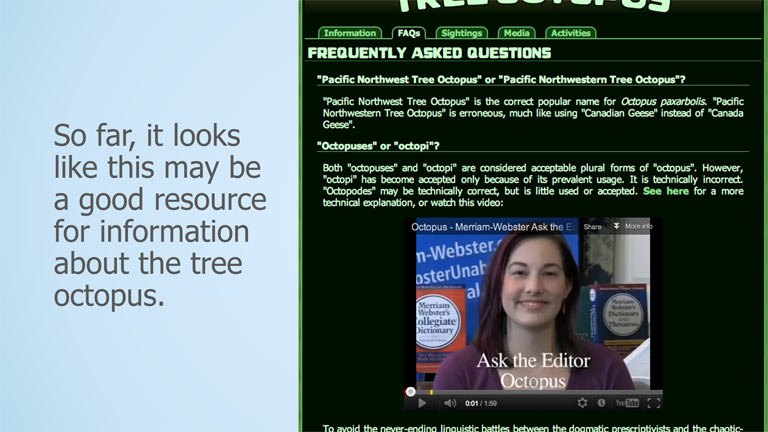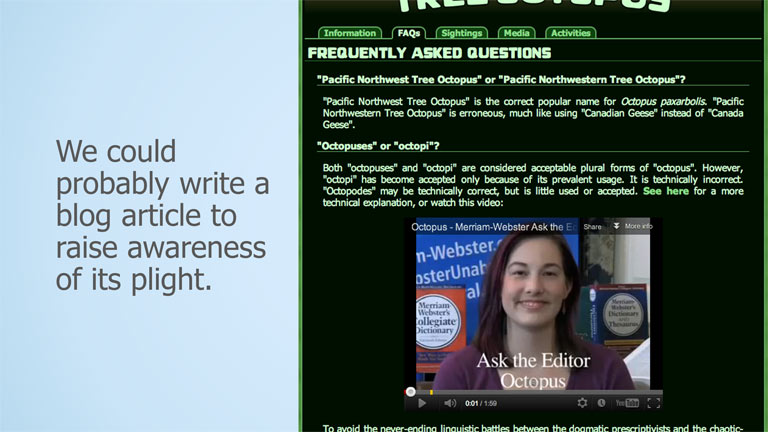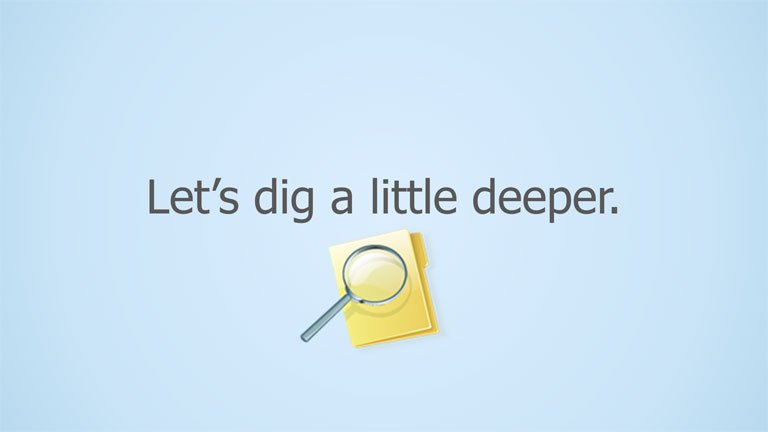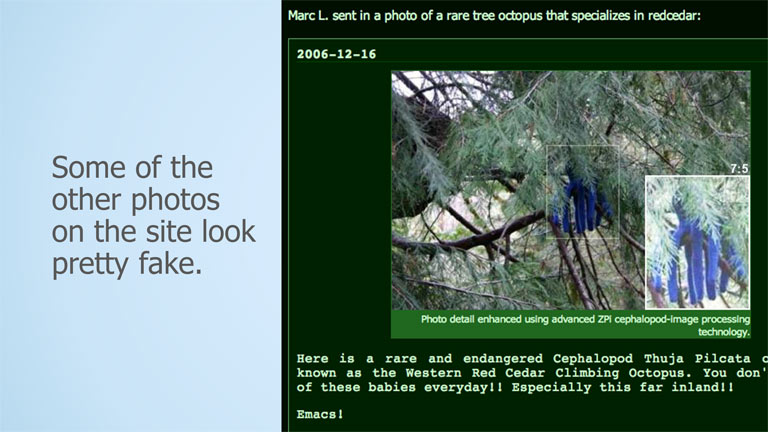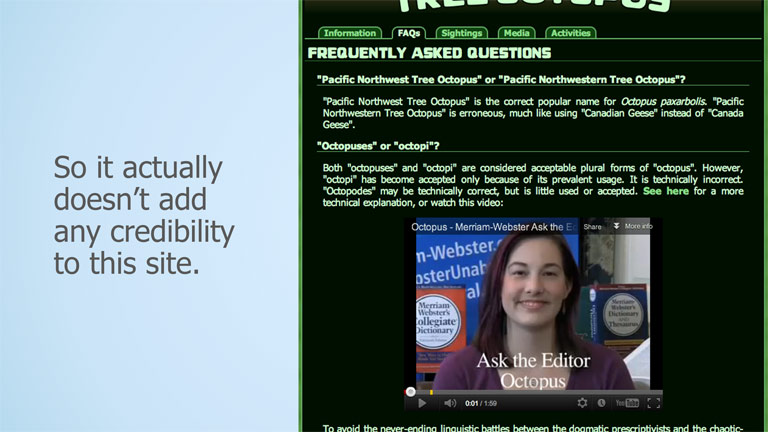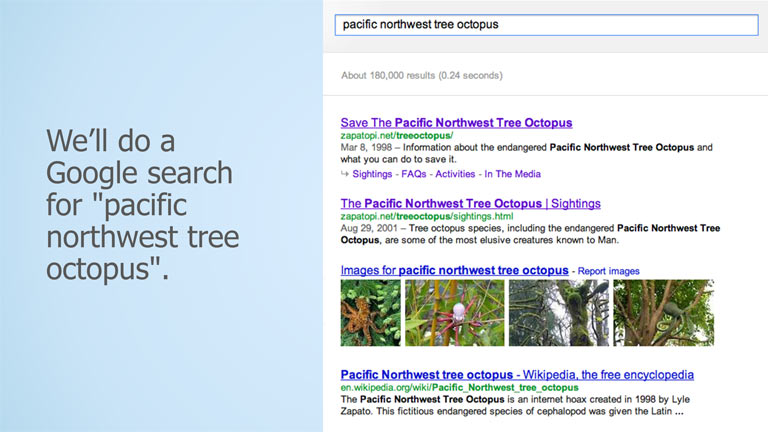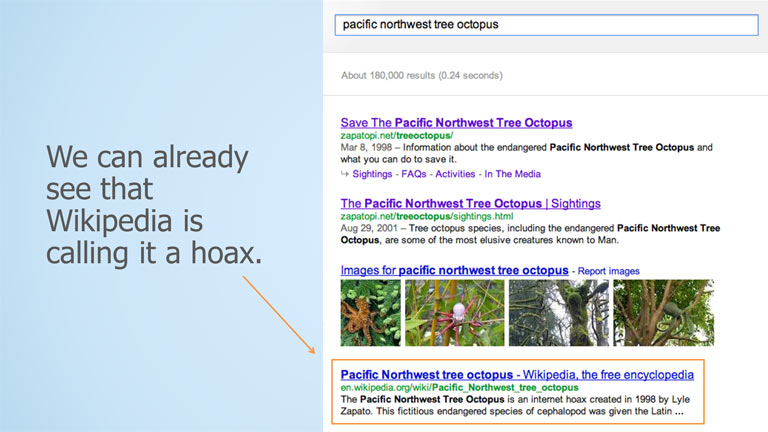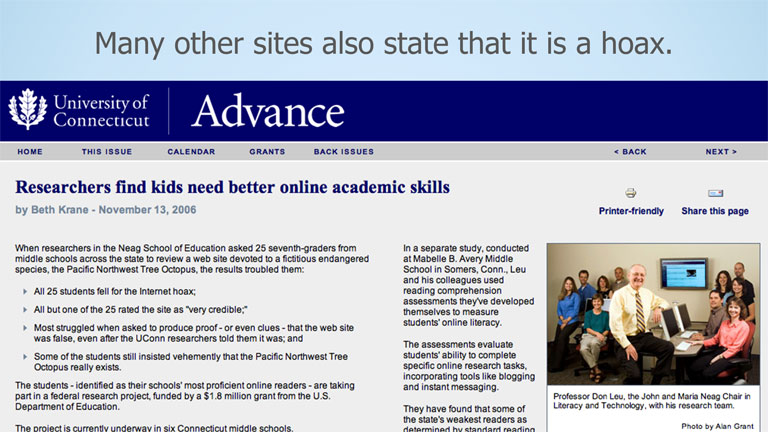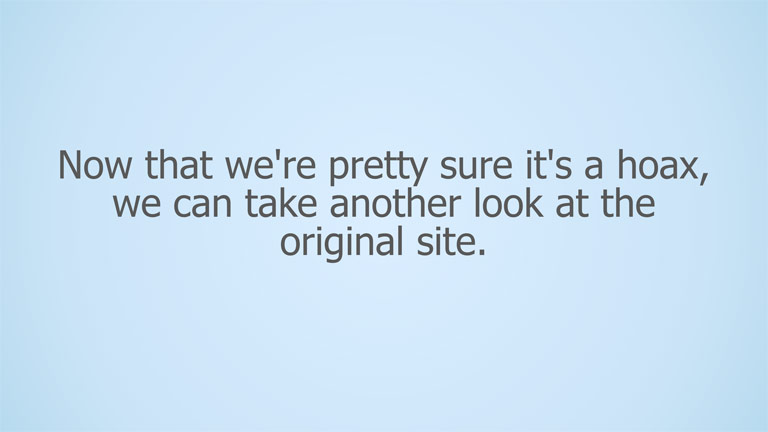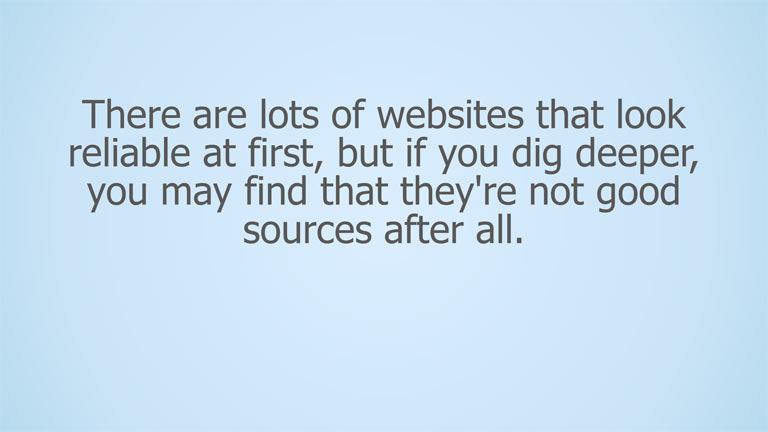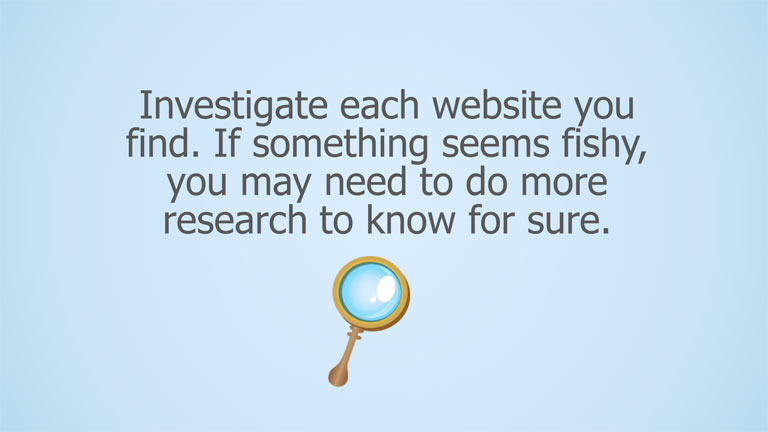Search Better
Judging Online Information
How to judge online information
If you're looking for information, the Internet has a lot of it. The problem is, you can't trust every website you find. You'll need to evaluate each website to decide whether it's reliable. We'll go over some skills to help you do that.
Review the interactive to learn the basics of evaluating a website.
Practice evaluating websites
Evaluating websites takes practice. We've already looked at some basic techniques you can use, but these techniques may not work on every website you find. You'll often need to use your critical thinking skills to make a good judgment.
Click the arrows in the slideshow below to see an example of how you can judge a website.
Verifying information with Snopes
Let's say your friend sends you an email containing an amazing "fact" or story. Even if you trust your friend, it doesn't mean the email is true. Chain emails can quickly spread around the world, and they often contain misinformation, hoaxes, political propaganda, and worse. Instead of simply forwarding the email to your other friends, take a moment to verify that the information is true.
One of the easiest ways to do this is to go to snopes.com and search for the story. Snopes is a well-known and trusted source for verifying Internet rumors. A typical Snopes entry will tell you whether the information is true or false, and it will also tell you where the story originated.
 A Snopes entry
A Snopes entryGo to dhmo.org to help determine whether the information is reliable.
- What is the purpose of the site?
- Is dihydrogen monoxide a real substance? Do you think it should be banned?
- Can you find other websites that support the claims made by dhmo.org?
Is Wikipedia reliable?
Yes!
It's a better source of information than most websites, and it's a good starting point for research.
No!
Anyone can add or change information, even if they don't know what they're talking about.
The truth is, it depends on how you use Wikipedia. It can be a great starting point for your research, but you shouldn't assume that all of the information is true. Instead, use the references at the bottom of an article to find the original sources. Then you'll need to evaluate those sources to see whether they are reliable.
Keep in mind that some Wikipedia articles are better than others. For example, try comparing the following two articles:
- The Bicycle article is well-organized and contains numerous references at the bottom. This is because many different people have worked on the article, and it has gone through many revisions.
- The Andean New Age music article does not contain any references, so it's difficult to know whether it's reliable.
Using multiple sources
No matter what kind of research you're doing, it's important to look at multiple sources. Even a reliable website may not include all of the relevant information. Using multiple sources allows you to see all sides of a story, which gives you a better perspective than if you had only looked at one source.










